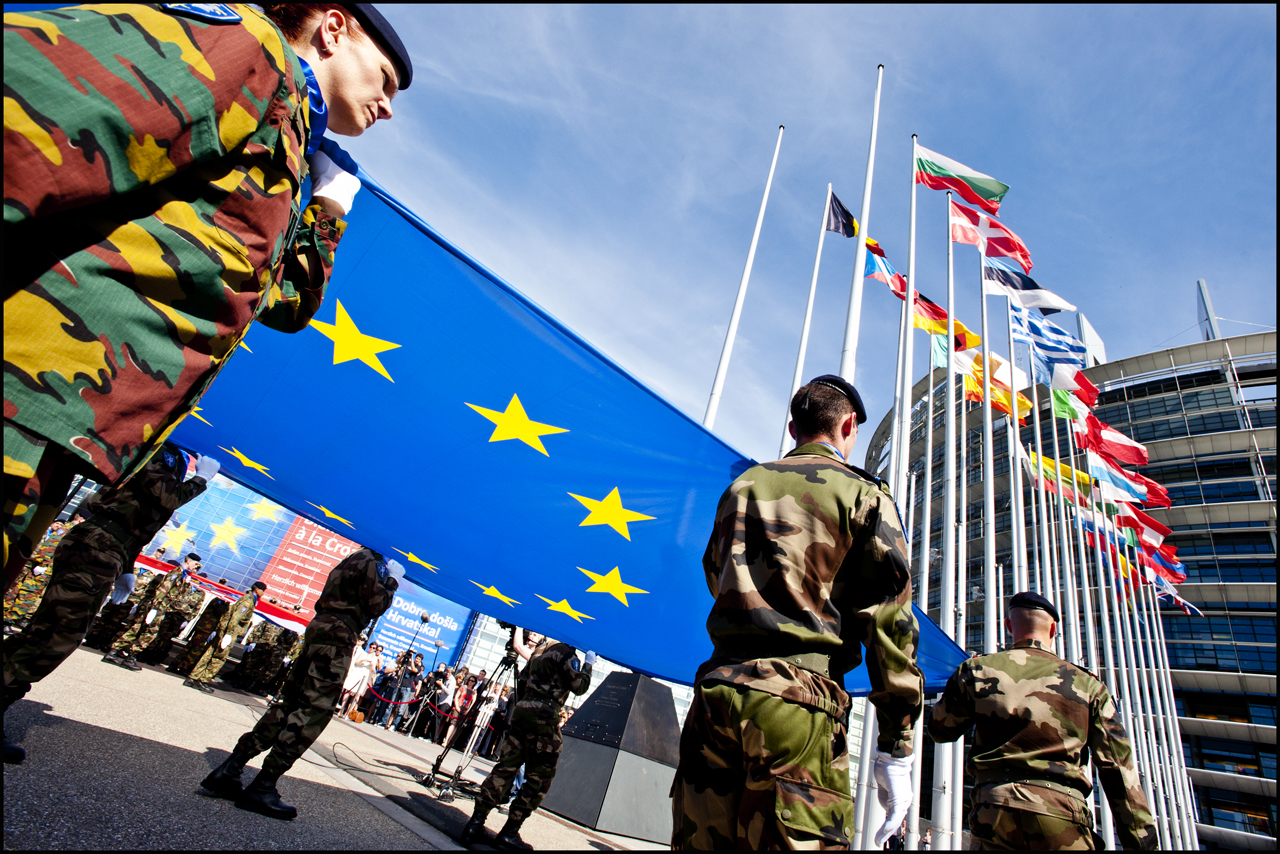What role for the Court of Justice of the EU in the post-Lisbon era?
The post-Lisbon reality: the EU political system as one
One of the most important novelties of the Lisbon Treaty is the abolition of the pillar structure which used to ‘stigmatise’ EU activities based on the supranational vs. intergovernmental operating mode. With the new treaty in place, the Union becomes a united construct which brings about serious systemic challenges. As of now on, different EU policies as well as its operating modes shall interfere with each other to an even greater extent. Granting new important competences to the EP (broadening the scope of the ordinary legislative procedure) and the European Council (now an official EU institution) [[ See more: J. Monar, « The European Union’s institutional balance of power after the Treaty of Lisbon, » in: Vv. Aa., The European Union after the Treaty of Lisbon: visions of leading policy-makers, academics and journalists, Publications Office of the European Union, Luxembourg, 2011, pp. 60-89.]] will change the hitherto division of labour amongst Union’s institutions. New systemic challenges for the EU and its functioning will also arise as a consequence of the economic crisis. International agreements brought into life to address it, such as the Fiscal Compact Treaty (FCT), overlap with the EU political system (e.g. it benefits from its institutional capabilities) but are not part of the acquis communautaire, therefore causing interpretation problems.[[ See e.g. R. Dehousse, « The ‘Fiscal Compact’: legal uncertainty and political ambiguity », Notre Europe Policy Brief, no. 33, February, 2013.]] All this will inevitably lead to functional clashes, some of which will have to be resolved by the ECJ. Consequently, one of its tasks in the post-Lisbon reality will be to contribute to finding a new balance within the EU political system by increasing the latter’s effectiveness (attainment of predefined policy objectives – policy outcomes) as opposed to efficiency (focus on internal procedural arrangements – policy outputs).[[ J. Neyer, »Explaining the unexpected: efficiency and effectiveness in European decision-making », Journal of European Public Policy, vol. 11, no. 1, 2004, pp. 19-38.]]
The ECJ as the system’s moderator
What purpose should this revamped EU political system serve? It shall enable further European integration based on stability and predictability. It is important to realise that the current crisis is not only of the economic nature but it concerns the whole political set-up of the Union. Although the EU efficiently put in place measures – policy outputs – aimed to prevent the member states from breaking the Maastricht criteria, i.e. excessive deficit procedure; it fell short of effectiveness as the expected policy outcomes (stable and predictable integration in the economic field) were not achieved. It is worth highlighting that the division of tasks amongst different EU institutions with regards to their monetary union responsibilities, which had been established long before Lisbon, was clear: the EC and the Council were made decision-makers and the EP together with the European Council mostly deliberative bodies. Under the new conditions (power more dispersed as new competences granted to the EP and the European Council, merger of the EU pillars), the ECJ shall more often be required to give its views on complexities regarding relations between different institutions, procedures governing the EU political system and their applicability. Its role shall therefore evolve more towards the system moderator bringing back stability and predictability which is an intermediate stage between the system interpreter and its regulator. Such a transformation shall be within reasonable limits: the ECJ cannot overregulate the system which currently provides for different means of dispute resolution (political bargaining) nor shall it try to ‘capture’ the process of European integration by getting involved in political quarrels between different EU institutions. This would result in a situation whereby the Court, through its rulings, could shape (skew?) teleological dimension of the Union, i.e. its objectives, which shall be done through political cooperation conducted in good faith and not by judicial bodies. In short, ‘yes’ to smarter involvement of the EU’s judiciary (rule of law), ‘no’ to raising its political profile (rule of lawyers). A good example of the ECJ taking up a new role of the EU political system’s moderator can be observed in its recent ruling in the Pringle case.[[ C-370/12, Pringle vs. Ireland, 2012, E.C.R.]] In it, the Court decided that the establishment of the European Stability Mechanism (ESM), which was contested by some parties in the EU, was in accordance with Union law. By arguing that, the Court confirmed that the member states had been right in pursuing extraordinary measures with the aim of safeguarding the eurozone. By answering a simple yes-or-no question (was the creation of the ESM in conformity with EU law?) the ECJ interpreted the decision taken by the national governments to be legally sound. The Court had been mainly required to produce such interpretations in the past but the post-Lisbon reality, with all its complexities, brings about new circumstances in which the ECJ will have to give much better quality advice as to where the EU should be headed. This is exactly what the Court did in the Pringle judgement when it decided to have its say on how the ESM should operate which resulted in going beyond a simple interpretation of the legality of the measure in question. Its view, clearly expressed in the ruling, was that any financial aid under the ESM should be subject to strict conditions to be met by future beneficiaries. Therefore, the Court confirmed the validity of the principle set out by the national governments in article 136 (3) TFEU that no financial aid should be granted to a member state in need unless it commits itself to major structural reforms. It should be highlighted that in its judgement the Court successfully restrained itself from crossing the line separating moderation of the political system from its regulation. Had the ECJ decided to do the latter and list a number of specific criteria to be met by future EMS aid receivers, it would have failed to recognise the need for institutional adaptations necessary when dealing with different EU member states. By keeping this factor in mind together with recognising that some countries had found themselves in a difficult economic position, each for a different reason; the ECJ acted in a way which does not threaten the flexibility of the EU political system necessary to help those in need out of trouble. Consequently, the Court indicated it did not intend to influence policy choices which were to be made by relevant EU institutions. What it did, however, was to support a general conditionality principle concerning future bail-outs.
Raising the ECJ’s profile and potential benefits
The major systemic constraint of the ECJ is that it has to be called upon to act by other actors. However, most of them, especially the member states, consider the Court as the ‘nuclear option’ and prefer to find a suitable consensus while keeping it at a distance. The problem starts when such a deal hampers system’s balance as was the case with eurozone integration where the member states made themselves the sole responsible for punishing a country failing to meet the convergence criteria. Going against the nemo iudex in causa sua principle led to a situation where an EU member could get away with not complying with the rules. Had there been a way to take member states to Court for violating the EMU provisions, discussions on its condition and areas where it possibly fell short of could have started years ago. One cannot be sure that it would have prevented the crisis but surely would have reduced its scale. There is no formal way to make EU actors refer to the ECJ more often. They will surely have problems accepting the Court’s new role. However, it is important to show responsibility in this respect and to keep in mind that the ECJ has largely contributed to advancement of European integration in areas where it has been called upon to act (e.g. the common market as opposed to the CFSP). While reaching out to the ECJ might look burdensome it pays off in the long-term perspective as such regulatory check-up increases the effectiveness of these parts of the EU political system where it was performed. The choice is therefore between short-term pain vs. long-term gain. Balancing the post-Lisbon political system of the EU will streamline its effectiveness. This in consequence shall reassure the member states that it is still possible to address serious systemic challenges through the Union. Closer ECJ’s scrutiny shall ensure that a number of integrationist spin-offs (not to be confused with spill-overs) such as the FCT, or in fact the ESM which also largely operates outside the EU framework, is largely reduced. It is true that both the UK and the Czech Republic blocked the former’s inclusion in EU law. However, had the ECJ been given a chance to ‘beef up’ the monetary union, would there have been a need for their veto in the first place? Bartłomiej Telejko is a policy adviser to the ECR Group at the European Parliament (EU energy, digital and trade policies), a former researcher at Centre Thucydide in Paris, a former trainee at the European Commission and German Marshall Fund of the U.S. in Brussels. He graduated from the College of Europe and holds a PhD in EU trade policy from the Jagiellonian University in Cracow, Poland. Views expressed in the essay are his own and do not reflect the position of the ECR Group.








